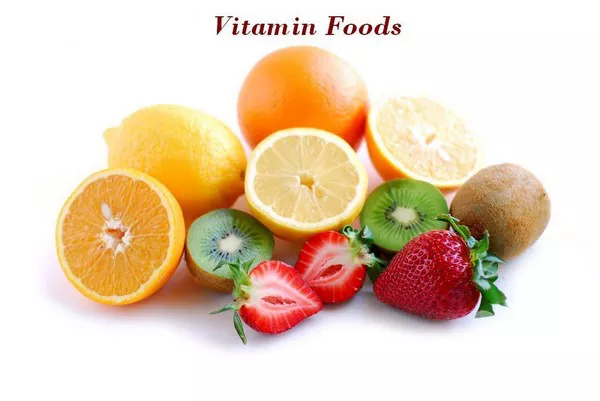Vitamin B7, commonly known as biotin, is a water-soluble B-complex vitamin with a significant role in maintaining overall health. Biotin is renowned for its contribution to healthy skin, hair, and nails, as well as its essential role in energy metabolism. This article delves into the world of biotin, highlighting its importance, recommended daily intake, and, most importantly, the foods that are rich in this vital nutrient.
Understanding the Role of Biotin (Vitamin B7)
Vitamin B7, or biotin, is a coenzyme that participates in several crucial metabolic reactions within the body. It is particularly known for its role in:
Metabolism: Biotin helps convert food into energy by facilitating various enzyme reactions in carbohydrate, fat, and protein metabolism.
Healthy Skin: Biotin plays a part in maintaining healthy skin, preventing dryness, and promoting a youthful appearance.
Hair and Nail Health: It is often referred to as the “beauty vitamin” due to its role in promoting strong and lustrous hair and nails.
Nervous System Function: Biotin is involved in nerve signal transmission, supporting proper nervous system function.
Recommended Daily Intake of Biotin
The recommended daily intake of biotin varies by age, sex, and life stage. Generally, the Recommended Dietary Allowance (RDA) for biotin is as follows:
Infants (0-6 months): 5 micrograms (mcg)
Infants (7-12 months): 6 mcg
Children (1-3 years): 8 mcg
Children (4-8 years): 12 mcg
Children (9-13 years): 20 mcg
Adolescents (14-18 years): 25 mcg
Adults (19 years and older): 30 mcg
Pregnant individuals: 30 mcg
Breastfeeding individuals: 35 mcg
While biotin deficiency is rare, individuals with certain conditions like genetic disorders, pregnancy, or those taking certain medications may require higher biotin intake.
Top Foods Rich in Biotin (Vitamin B7)
Including biotin-rich foods in your diet is an excellent way to ensure you meet your daily requirements. Here is a list of foods that are abundant in biotin:
1. Eggs
Eggs are a biotin powerhouse, with the yolk containing the highest concentration. One large egg provides approximately 10 mcg of biotin, making it an excellent dietary source.
2. Nuts and Seeds
Almonds: Almonds are not only a healthy snack but also a great source of biotin. A quarter-cup of almonds provides about 1.5 mcg of biotin.
Sunflower Seeds: A quarter-cup of sunflower seeds contains approximately 2.6 mcg of biotin.
3. Legumes
Legumes like peanuts, soybeans, and lentils are good sources of biotin. A half-cup of boiled peanuts offers around 5 mcg of biotin.
4. Organ Meats
Liver and kidney meats, particularly from beef, are rich in biotin. A 3-ounce serving of cooked beef liver provides about 30 mcg of biotin.
5. Sweet Potatoes
Sweet potatoes are a nutritious and biotin-rich vegetable. One medium-sized sweet potato contains roughly 8 mcg of biotin.
6. Dairy Products
Milk: A cup of cow’s milk contains approximately 0.3 mcg of biotin.
Cheese: Cheddar cheese, in particular, offers a small but notable amount of biotin, with one ounce providing around 0.4 mcg.
7. Spinach
Leafy greens like spinach contain biotin. A half-cup of cooked spinach offers approximately 0.5 mcg of biotin.
8. Whole Grains
Whole grains like oats and wheat germ are moderate sources of biotin. A half-cup of cooked oats provides about 0.2 mcg of biotin.
9. Salmon
Salmon is a rich source of biotin among fish. A 3-ounce serving of cooked salmon provides approximately 4-5 mcg of biotin.
10. Avocado
Avocado, known for its various health benefits, contains a modest amount of biotin. One whole avocado contains around 2-6 mcg of biotin, depending on its size.
11. Cauliflower
Cauliflower is a biotin-rich cruciferous vegetable. A half-cup of cooked cauliflower offers about 0.2 mcg of biotin.
12. Mushrooms
Mushrooms, such as shiitake and portobello, are sources of biotin. A half-cup of cooked shiitake mushrooms provides approximately 2 mcg of biotin.
13. Pork
Pork, particularly lean cuts like tenderloin, contains biotin. A 3-ounce serving of cooked pork tenderloin offers approximately 2-3 mcg of biotin.
14. Chicken
Chicken is another meat source of biotin. A 3-ounce serving of cooked chicken breast contains about 0.4 mcg of biotin.
15. Berries
Berries like strawberries, raspberries, and blueberries contain small amounts of biotin. A half-cup of fresh strawberries, for example, offers approximately 0.2 mcg of biotin.
Supplements and Biotin
While obtaining biotin from natural food sources is ideal, biotin supplements are available over-the-counter. However, it’s essential to consult with a healthcare professional before starting any supplements to determine if they are necessary for your specific health needs.
In Conclusion
Vitamin B7, or biotin, plays a vital role in various metabolic processes and supports healthy skin, hair, and nails. Including biotin-rich foods in your diet is an excellent way to meet your daily requirements naturally. A well-balanced diet that incorporates these biotin sources can help you maintain optimal health and well-being. Remember that individual biotin needs may vary, so consult with your healthcare provider to ensure you meet your specific nutritional requirements.


